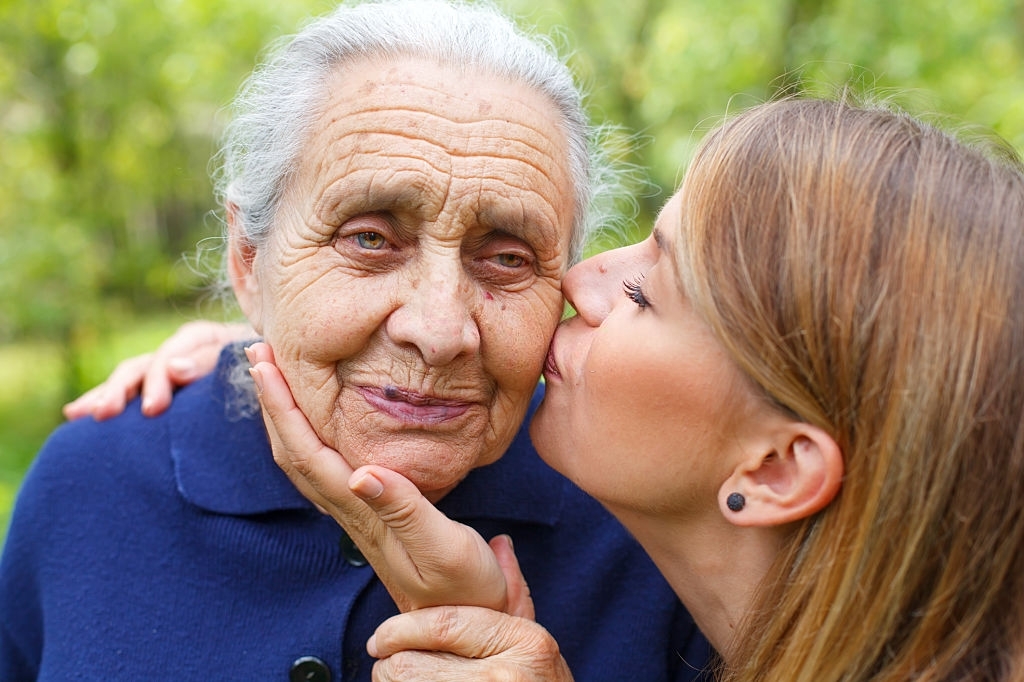4 Benefits of Validation Therapy for Elderly with Dementia

It hurts to witness our loved ones slowly lose their identity and forget who they were. Dementia leaves your loved one feeling confused and causes a sense of loss and emptiness. It is a difficult time for the family members as well as the one who has dementia. This behavior may cause them to withdraw themselves from people and their family members. They think that they aren’t capable of doing things right anymore and consider themselves useless. However, there are treatments available to help the elderly with dementia, including validation therapy. You may not heal them completely, but you can let them feel loved and accepted despite their illness.
At Serenity Senior Care, we understand how difficult it is to care for a loved one with dementia. That’s why in this article, we shared information on Validation Therapy. We hope this article will help caregivers better understand dementia and lead them to the right decisions to care for their loved ones. Please read on as we discuss the benefits of Validation Therapy for the elderly with Dementia.
What Is Validation Therapy?
Validation therapy is a type of treatment that focuses on the importance of listening to those who have dementia and finding out what they want to communicate. It helps your loved one feel respected and understood.
This method is based on the idea that all human beings are entitled to respect. Validation therapy focuses on the positive aspects of an individual, how they want others to see them, instead of focusing on problem areas. This method aims not to change behavior but provide compassionate understanding to the person who has dementia or an older adult who feels lost or unwanted.
Seniors with dementia may show irrational behavior, which can be challenging for those who care for them. Many caregivers may try to help them correct that behavior. However, validation therapy is a way for caregivers to enter the reality of seniors instead of trying to bring them back to reality.
Validation therapy helps aggression in seniors with dementia and explores what they are feeling. It allows seniors to feel loved and understood instead of rejected. While validation therapy needs an excellent deal of patience, validation therapy has some essential benefits.
The 4 Benefits of Validation Therapy?

1. Slows The Advancement of The Dementia
Dementia is a chronic illness that causes loss of memory. Victims of this illness feel more alone. They can become depressed and withdrawn from others if neglected, ignored, or treated harshly by their caregivers or family members.
Validation therapy helps solve these problems. It facilitates improved communication between senior citizens and their caretakers/family members. In other words, it makes them feel loved and accepted while also helping your loved one to slow the progression of dementia.
2. Make Seniors Feel Valued
Seniors who have dementia find it challenging to do tasks without feeling worried that they may make mistakes. Their low self-esteem adds to their stress. They feel like they need to make an effort to be as good as before. As a result, they become frustrated and withdrawn from others.
Validation therapy helps seniors who have dementia feel valued and accepted despite any physical or mental disabilities they might have experienced due to their illness. They will regain their positive attitudes and become more communicative with others again, which prevents further withdrawal and loneliness. It helps them cope with the loss of identity and their sense of worthlessness by restoring a sense of hope. It also allows them to talk about their feelings, which is good for improving their coping mechanisms.
3. Prevents Withdrawal
Those who are afraid to make mistakes will withdraw from others. This behavior can cause them to feel ashamed, rejected, and worthless. They may be ashamed that they are no longer independent or find it difficult to understand things. It is especially true in the case of dementia patients because their illness makes them slow in their thinking process.
Validation therapy aims to help seniors who have dementia feel loved despite their inability to do things the way they used to before becoming ill. They feel like they can belong and can make a difference. With this, they will feel wanted, and the feeling of not being able to contribute will be gone. They may still be slow in their thinking process, but that doesn’t mean they don’t have good ideas to offer.
4. Improves Communication Levels
When seniors feel understood, validated, and respected, it encourages them to talk about what’s bothering them. It allows seniors who have dementia to communicate their wants and needs without being afraid of being judged badly by others. Validation therapy helps seniors who have dementia to express their thoughts and feelings freely.
It also helps improve their ability to make good decisions by diminishing the fear of making mistakes. Thus, it gives them clear direction instead of being lost. It will prevent them from making bad decisions which leads to further isolation and depression.
Ways to Implement Validation Therapy?

Implementing validation therapy requires patience to deal with everything seniors with dementia want to say. You need to be prepared to listen to them and let them know that you are there for them without judging and criticizing. It’s vital to be attentive and avoid doing other things while they talk because this will make them feel like they are not worthy of your time.
This method requires that caregivers be at the same place where seniors spend most of their time (e.g., living room, bedroom, etc.) so they will not feel neglected.
Here are some tips to help you communicate with your aging loved one through validation therapy:
1. Use A Loving Tone
It is the most important thing to remember when communicating with an older loved one. Try to communicate with a loving tone all the time. When you are sharing your feelings, use loving emotions like love, compassion, understanding, etc. You can also try to avoid putting pressure on your older loved one by avoiding using words like “you must,” “always,” or “never.” It may help to use positive facial expressions and actions as well as vocal tones.
2. Do Not Argue With Them or Get Defensive
Seniors with dementia often have exaggerated ideas about themselves. They are still capable of having responses to your voice, tone, facial expressions, or actions. You should not argue with them or get defensive when they contradict what you just said. It may threaten them and cause them to become upset. Other times, they may be manipulating you for their reasons. When you see that it is not working, don’t continue using this method because it can cause conflict between you two.
3. Maintain Eye Contact
When you are communicating with a senior who has dementia, you should maintain eye contact with them at all times. It will help them to feel confident and relaxed. You can even use small, gentle touches to show affection.
4. Focus On The Emotional State Of Your Loved One
Validation therapy requires that you focus on the emotional state of your loved one at all times. First, try to understand their feelings by asking them what is bothering them or even just listening attentively. You can then find the root of the problem and determine if you can cope with it. Once you realize that they want to talk about something, don’t interrupt them unless you only need a couple of minutes of their time.
5. Don’t Ask Your Loved One Why they Said or Did Something
You may be curious about why your loved one did or said something and why they won’t remember it later on. It is important to stop asking repeatedly and go to the next step of Validation therapy. Ask your loved one why to think that certain things aren’t working. Do this in a very caring tone. Try to find out what they want to say by calmly asking questions like “What do you want since you want to talk about this?” After that, listen to what they say.
6. Turn The Conversation Toward a Positive Memory
Here’s an idea to work with. When validating your older loved one, try turning the conversation toward how wonderful they used to be. Try to think of a time when your loved ones were really happy and didn’t have any problems in their lives. Try to talk about the good old times and how much happier they used to be back then. This way, they will be able to move on with the conversation without dwelling on the bad things that made them sad in the past. You can also talk about how happy you are to be their caregiver and see that they are doing better with their situations. Remember not to stay with just one thing because this could confuse them.
Conclusion
At Serenity Senior Care, we know how challenging it is to care for dementia patients. However, with the right approach, it can be a rewarding experience. Through validation therapy, you will gain more love from your senior loved one. Validation therapy is very simple and easy to follow. However, it still requires patience and devotion from caregivers who want to ensure that their loved ones with dementia can express themselves.
Serenity Senior Care has been offering high-quality senior care services for a long time now. And we use effective approaches like validation therapy to help our dementia patients communicate better. Our team of caregivers is made up of individuals who are talented in helping people feel valued and useful again, even when they have dementia or other diseases. Contact us today to learn more about our services to help seniors with dementia feel loved and cared for again.


